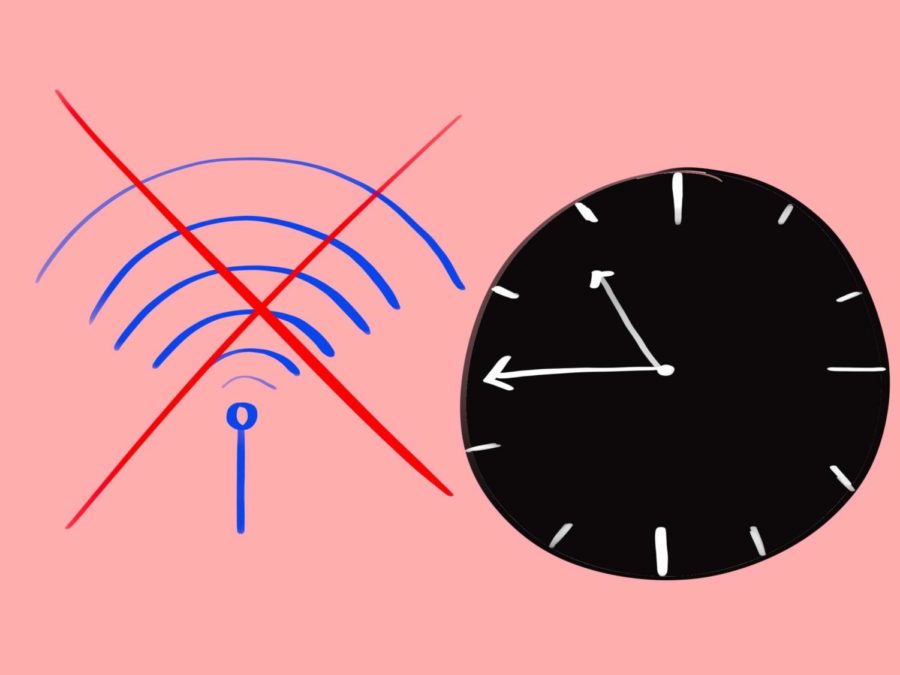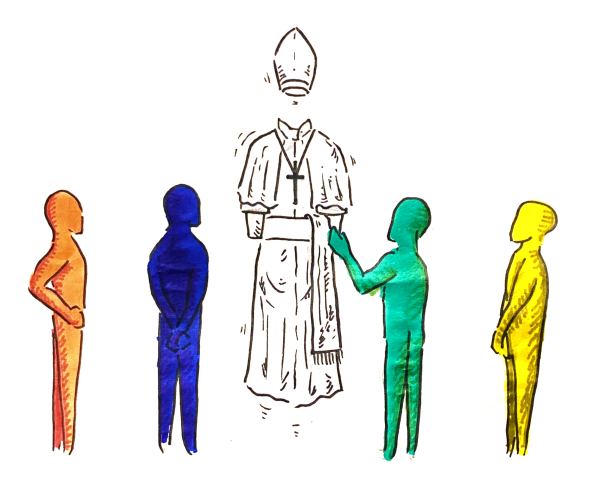Lift Restrictions on Lowerclass Student WiFi
You are frantically mashing at your keyboard, desperately trying to complete your English essay as you eye the clock. It reads 10:44 PM and it seems almost plausible that you will be able to type the final sentence in your essay. As you hastily upload your file and spam the “Submit” button, an error message jeers at you. You were only moments away from submitting an essay that could have tipped the scales of your grade, though the school’s WiFi policy remains obstinate. These are the very students that are victims of Hotchkiss’s WiFi policy. The abrupt WiFi cutoff is an unjust system that does not serve its intended purpose of ensuring a healthy sleep schedule.
At a school where students take different courses based on skill level, it is unreasonable to restrict all lowerclass students’ WiFi to a universal shut-off time. The Almanac itself recognizes the distinction in homework load between regular and honors courses: “For most classes, this means up to 45 minutes of preparation time per class period, though the greater demands of honors courses may require up to 60 minutes.” Despite this acknowledgement, the administration maintains that students who are enrolled in higher-level and honors courses are to complete their far more rigorous coursework within the same timeframe as ones who are enrolled in regular classes. This inequitable system begs the question of how this policy can in any way promote healthy lifestyles when all it does is add stress to students who cannot possibly finish their homework within the allotted time.
Moreover, the WiFi policy fails to consider aspects of homework load that are completely out of a student’s control. Even within the same courses, some teachers give considerably more homework than others. Co-curricular obligations vary greatly too, with some team practices much longer than others. These discrepancies mean almost every student, regardless of course load, is afforded a different amount of time to complete their work each night. Regardless, the WiFi shut-off time remains stringent and unyielding. It is not a reasonable consideration of students’ differing schedules and course levels, but a universal, inaccurate estimation by administrators of what would send students to sleep.
The problem has plagued Preps and Lower Mids to the point where it is common to obtain WiFi from Seniors and Upper Mids, a major rule violation. Frustratingly, it seems as though the school is more focused on punishing students who break the rules than considering if those rules are reasonable and fair. The fact that such a large number of students feel the need to have WiFi past 10:45pm indicates that there is a problem in the status quo. Suggesting that all of them need to learn better time management skills or to stop scrolling through social media is an ignorant refusal to acknowledge that most students who use upperclassman WiFi are simply trying to make it through their work. Making it a punishable offense to finish homework encourages rule-breaking and
The WiFi cutoff time is an unreasonable perspective of an idealistic student life. As a result of the administration’s good-faith attempts to enforce healthy habits, a great number of students who take advanced courses and receive a large amount of homework have suffered under the strict WiFi policy. Some are even punished for simply seeking to complete such work. The school has time and time again expected excellence from students, yet how should we achieve that if the flawed system continues to stymie our academic endeavors?






